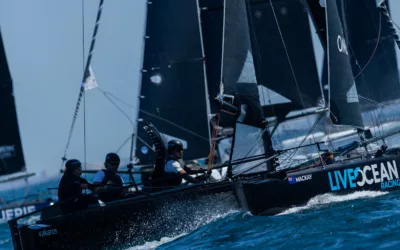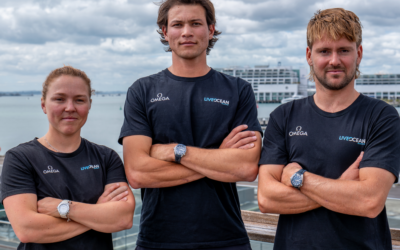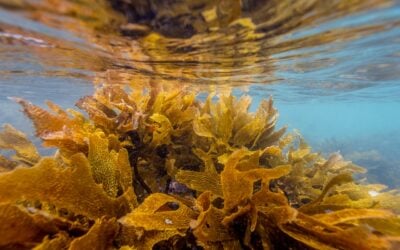Photo credit: Jodi Osgood-Webber
15 December 2021, Auckland
Live Ocean welcomes the agreement between the Governments of New Zealand and Spain to address the conservation emergency facing seabirds that migrate across international waters, including albatrosses and petrels. The marine conservation foundation is calling on the New Zealand government to now turn the agreement into action to help halt the freefall to extinction of the Antipodean albatross and other seabirds.
The Memorandum of Understanding (MOU) signed by New Zealand’s Ambassador to Spain Nigel Fyfe and Spanish Vice President Teresa Ribera yesterday in Madrid signals prioritisation at the highest level by the two countries to reduce the number of threatened seabirds dying as a result of commercial fishing practices.
The agreement is designed to promote the adoption of best practice fishing methods, including using what is known as ‘three of out three’ – weighted lines, bird-scaring lines and night setting. It also includes a commitment by the two nations to advocate internationally to promote the uptake of these fishing methods.
New Zealand is the seabird capital of the world with more nesting and breeding here than anywhere else on the planet. 90% of our seabirds are threatened with or at risk of extinction (New Zealand Ministry of Environment). The Antipodean albatross is New Zealand’s most threatened albatross with estimates of 2,300 ‘extra’ being lost each year (New Zealand Department of Conservation). The number one threat to them is being killed by the long lines from fishing boats.
It was the first project sailors Peter Burling and Blair Tuke got behind when they established Live Ocean. The foundation has provided funding for satellite tags deployed in early 2020 as part of the Department of Conservation’s long term monitoring plan and supported the 2020/2021 voyage to the Antipodes Islands, which saw the largest ever deployment of satellite trackers on an albatross population in New Zealand. The monitoring programme is designed to track where their feeding grounds overlap with fishing fleets.
“We see the Antipodean albatross as a symbol for the crisis facing many of the world’s seabirds and the threats they face from longline fisheries” said Peter Burling. “These incredible navigators are in a population freefall towards extinction and it’s excellent to see these two countries work together. Now the agreement is in place, it’s time for action.”
The duo have used their platform to highlight the issue on the world stage through their sport, through Live Ocean’s Race for the Future charity partnership with the New Zealand SailGP Team. Speaking at the SailGP Champions for Change event alongside New Zealand ambassador to Spain, Nigel Fyfe, the New Zealand SailGP Team also displayed a graphic of an albatross on their boat throughout the Cadiz Grand Prix. It was a symbol of the team’s commitment to shining a spotlight on the plight of the Antipodean albatross and working to stop their freefall into extinction. The albatross graphic will also feature on the team’s F50 once again at the upcoming Sydney Grand Prix.
The Ambassador to Spain Nigel Fyfe said “This is a tangible commitment to ensure our fishing boats follow best practices to avoid capture of seabirds in the southern fisheries. And our two countries will go out and work with other countries involved in that fishery to ensure those best practices are widely followed’.
“This wouldn’t have happened without the leadership and determination of Pete Burling and Blair Tuke who for the past two years have been championing the Antipodean Albatross alongside the New Zealand scientists, agencies and communities committed to saving them from freefall to extinction,” said Nigel Fyfe.
Now that a signed MOU is in place, Live Ocean looks to the New Zealand government to scale up its commitment to action, including engaging with more nations where migratory birds travel including Taiwan, Australia, Japan, and Pacific nations, and working with fishing fleets to actively encourage uptake of the best practice fishing measures.
“Aotearoa New Zealand is the seabird capital of the world. If New Zealand doesn’t lead this out, who will? It’s really encouraging to see New Zealand and Spain are stepping up to this issue”, said Blair Tuke. “These birds don’t understand national boundaries, the Antipodean albatross roams between New Zealand, Chile, Australia and the Pacific, so countries have to work together.”



